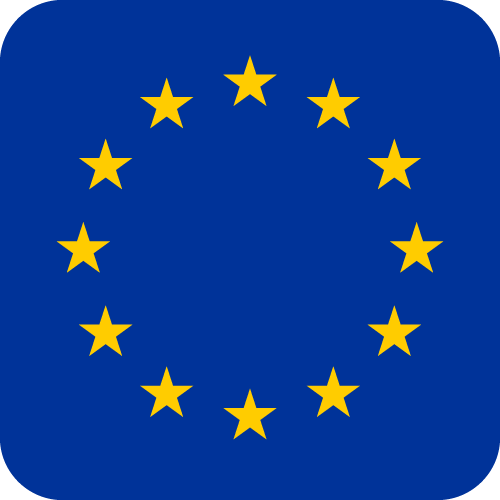Soepkip
- 10 Posts
- 28 Comments

 1·1 year ago
1·1 year agoGood call, there was nothing worth salvaging of an organization that is responsible for that atrocity.
That is indeed unique.

 1·1 year ago
1·1 year agoWill this allow Lukashenko to draw in Wagner troops and give them a base of operations, allowing him to provide some sort of resistance against a hostile military takeover. Some sort of insurance/body guard type deal, since Prigozhin also would not want it to be annexed now he is “safe”?
Shoigu focusing more on Africa will allow him to rotate PMC Patriot in and Wagner out, giving him the ability to become even richer.
Ik hoop dat er een mogenlijkheid komt voor gebruikers om hele instances the blocken. Dan is de discussie een stuk makkelijker.
En met het sentiment van dethleffs@feddit.nl ben ik het eens.

 21·1 year ago
21·1 year agoThought it was an interesting Video, but with the madness that is the previous week it seems underwhelming (with the lack of a better word).
My build is special because I use a very old server case that I have remodeled the interior of and is so ugly i hide it behind my monitors.
It does the job. No LEDs, no bling. It seems to be the exception.

 9·1 year ago
9·1 year agoBla bla bla… Traitors… Bla bla bla … Russia the greatest … Bla bla bla … We will win.
Not worth the airtime it was given.

 24·1 year ago
24·1 year agoI can’t see Wagner beiing able to do this again. But then again, grab a chair, grab popcorn.

 26·1 year ago
26·1 year agoYes, No way i knew that i needed to know all that info on detergent :P
Wow, this has a lot in one image.
same here, although i also find myself using the webinterface a lot more.

 3·1 year ago
3·1 year agoYour sentiment though well placed seems to be incorrect, there is a big risk.
https://en.m.wikipedia.org/wiki/Embrace,_extend,_and_extinguish

 3·1 year ago
3·1 year agoAccording to Valve:
Over time, the battle pass grew into a massive operation that sucked up nearly all the time, ideas, and resources of staff working on the game. In the early days of Dota 2, content updates were more varied and frequent. But over time the battle pass began to consume every idea or feature, leading to a situation where for most of the year Dota 2 had little to no new content until the next big battle pass update.
and
While work is still in progress on future updates, the first of these has shipped: ‘New Frontiers’ and patch 7.33 couldn’t have shipped as they did if we were focusing all our efforts on producing Battle Pass content. The community response to ‘New Frontiers’ has helped us build confidence that working less on cosmetic content for the Battle Pass and more on a variety of exciting updates is the right long-term path for Dota as both a game and a community
Pretty wild, as this seems to describe the issue with most live service games and high end titles in general.

 6·1 year ago
6·1 year agoDe beproefde techniek schijnt te zijn:
Fase 1: omarmen. Meedoen met de hype, toegang geven tot het nieuwe en er volop gebruik van laten maken.
Omdat je ook je eigen “oude” content nog hebt ben je daardoor aantrekkelijk en blijven mensen bij je omdat ze ook aan het nieuwe mee kunnen doen.
Fase 2: uitbreiden. Je voegt functionaliteit toe rondom het nieuwe op basis van wat je gebruikers willen en kennen. Dit doe je alleen op je eigen platvorm zodat het alleen beschikbaar is voor je eigen gebruikers.
Mensen willen dat en blijven, terwijl het nieuwe platvorm hier niet aan mee kan doen. De aantrekkelijkheid van het nieuwe platvorm wordt minder.
Fase 3: afscheid Als je eenmaal voldoende gebruikers hebt die de nieuwe functies die alleen jij kan bieden, ontkoppel je en laat je het nieuwe platvorm achter.

 1·1 year ago
1·1 year agoOp zich tof om te lezen dat er getest wordt met allerlei soorten gewassen. Hopelijk vinden ze goeie gewassen zodat er weer meer veengrond terug kan naar het originele waterpeil.
TL/DR: The Economist Intelligence Unit (EIU) released its annual Global Liveability Index on Thursday, and Vienna came in at number one out of 173 cities analysed. What makes it such a great place to live? According to the report: its ‘winning combination of stability, good culture and entertainment, reliable infrastructure, and exemplary education and health services.’
- Vienna, Austria
- Copenhagen, Denmark
- Melbourne, Australia
- Sydney, Australia
- Vancouver, Canada
- Zurich, Switzerland
- Calgary, Canada
- Geneva, Switzerland
- Toronto, Canada
- (=) Osaka, Japan and Auckland, New Zealand
Het lijkt wel alsof het zo ontworpen is. Om moe van te worden. Het is schandalig.

 4·1 year ago
4·1 year agoNet als met brommers is het erg verleidelijk, en met de e-Bike kan de controleur niet eens van de herrie uitgaan. Ik vermoed dat snelheidsmeters en rollerbanken steeds meet ingezet gaan worden hiervoor.

 1·1 year ago
1·1 year agoBut removable batteries and waterproof are not mutually exclusive. It was already possible 10 years ago and still is. The current selection is limited, but this legislation will change that.
https://www.androidauthority.com/best-android-phones-removable-battery-697520/





let’s hope it trains people to respond “NO” to such nonsense.